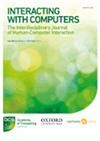以人为本计算中的远程工作、工作测量和工作研究现状
IF 1.3
4区 计算机科学
Q3 COMPUTER SCIENCE, CYBERNETICS
引用次数: 4
摘要
在过去的几十年里,有一小群人在家里远程工作,但人数在不断增长。随着冠状病毒大流行的到来,数百万人发现自己一夜之间加入了这个群体。在本立场文件中,我们研究了为应对疫情而“转向远程”的工作类型,并考虑了这种转变是如何受到(并反过来影响)数字化工作场所测量和评估的当代趋势的影响的。我们看到,雇主似乎不愿意让某些类别的员工远程工作。当疫情迫使员工回家时,雇主通过使用数字监测工具进行补偿,尽管正如我们所说,这些工具似乎无法克服理解人们如何工作的重大概念障碍。我们还观察到,在英国,大流行并不意味着很大一部分人口需要远程工作。我们断言,为了最大限度地发挥其影响,以人为中心的计算的“未来工作”研究必须更具包容性和代表性,而不是专注于知识工作者和参与新形式工作的人的经验。本文章由计算机程序翻译,如有差异,请以英文原文为准。
Remote Work, Work Measurement and the State of Work Research in Human-Centred Computing
Over the past few decades, a small but growing group of people have worked remotely from their homes. With the arrival of the coronavirus pandemic, millions of people found themselves joining this group overnight. In this position paper, we examine the kinds of work that ‘went remote’ in response to the pandemic, and consider the ways in which this transition was influenced by (and in turn came to influence) contemporary trends in digital workplace measurement and evaluation. We see that employers appeared reluctant to let certain classes of employee work remotely. When the pandemic forced staff home, employers compensated by turning to digital surveillance tools, even though, as we argue, these tools seem unable to overcome the significant conceptual barriers to understanding how people are working. We also observed that, in the United Kingdom context, the pandemic didn’t mean remote work for a significant proportion of the population. We assert that, to maximize its impact, ‘future of work’ research in human-centred computing must be more inclusive and representative of work, rather than focusing on the experiences of knowledge workers and those involved in new forms of work.
求助全文
通过发布文献求助,成功后即可免费获取论文全文。
去求助
来源期刊

Interacting with Computers
工程技术-计算机:控制论
CiteScore
2.70
自引率
0.00%
发文量
12
审稿时长
>12 weeks
期刊介绍:
Interacting with Computers: The Interdisciplinary Journal of Human-Computer Interaction, is an official publication of BCS, The Chartered Institute for IT and the Interaction Specialist Group .
Interacting with Computers (IwC) was launched in 1987 by interaction to provide access to the results of research in the field of Human-Computer Interaction (HCI) - an increasingly crucial discipline within the Computer, Information, and Design Sciences. Now one of the most highly rated journals in the field, IwC has a strong and growing Impact Factor, and a high ranking and excellent indices (h-index, SNIP, SJR).
 求助内容:
求助内容: 应助结果提醒方式:
应助结果提醒方式:


